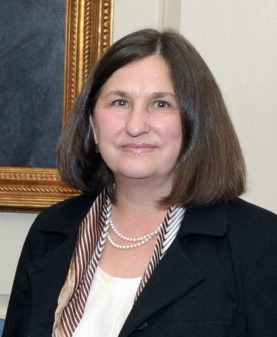 | Dr. Cynthia Baldwin received a PhD in Immunology from Cornell University. Her research area is vaccine design based on cellular immune responses. Her interest is in international agriculture, specifically the impact of infectious disease on food animal health and therefore human health. She is interested in vaccines both to infectious disease agents that cause zoonotic diseases in humans (those acquired by humans as a result of contact with infected animals or their food products) and those that only infect livestock but, as a result, impact food supply. Her work includes the study of protective immune responses to the bacteria Brucella that infects livestock species, causes zoonotic infections in humans worldwide and is classified as a potential biowarfare agent. Her laboratory also conducts basic immunological research on T lymphocytes of ruminants, knowledge needed to develop vaccines to prevent infections in cattle and sheep. They recently participated in the international project to sequence and annotate the genome of cattle and are known for their work on gamma delta T lymphocytes and their role in protective immune responses. Currently, Dr. Baldwin is a Professor in the Department of Veterinary and Animal Sciences at the University of Massachusetts (Amherst) and a member of the Cellular and Molecular Biology interdepartmental graduate program. In the 1980s she worked as a postdoctoral fellow and scientist at the CGIAR laboratory in Nairobi, Kenya and was subsequently a faculty member in the microbiology department at Ohio State University. Dr. Baldwin was named the 2002 Distinguished Veterinary Immunologist and is a member of the American Association of Immunologist, the American Society for Microbiology, has been president of the American Association of Veterinary Immunologists and chaired the international organization Brucellosis Research Workers. Currently she is on the veterinary immunology committee of the International Union of Immunological Societies and editor of the journal Veterinary Immunology and Immunopathology. She is interested in building scientific capacity in developing countries for disease surveillance and research and fostering long-term collaborations between scientists in those countries and the USA.
USAID Profile
Dr. Cynthia Baldwin focused her efforts at the U.S. Agency for International Development (USAID) on the International Research and Biotechnology team in the Office of Environment and Science Policy in the bureau of Economic Growth, Agriculture and Trade. Dr. Baldwin initiated the first pilot program of an MOU between the National Science Foundation and USAID that will fund a number of partner research projects in developing countries. Additionally, Dr. Baldwin served with a small working group to determine the research agenda for the Feed the Future (FtF) Initiative, which will increase funding for agriculture research in light of the needs for a growing population. As part of her participation, Dr. Baldwin traveled to Africa and Rome to conduct consultations, co-authored a webpage on the initiative, contributed to Presidential and Secretarial speeches on the topic, and organized workshops with other U.S. government agencies. In addition to her work at USAID, Dr. Baldwin participated in the U.S. Department of State delegation to New Zealand for a Joint Commission Meeting on science and technology cooperation and subsequently organized a US-NZ follow-on workshop on animal health in the US . Dr. Baldwin continues to meet with colleagues at USAID and plans to travel to Africa to continue her work with the FtF initiative. |





